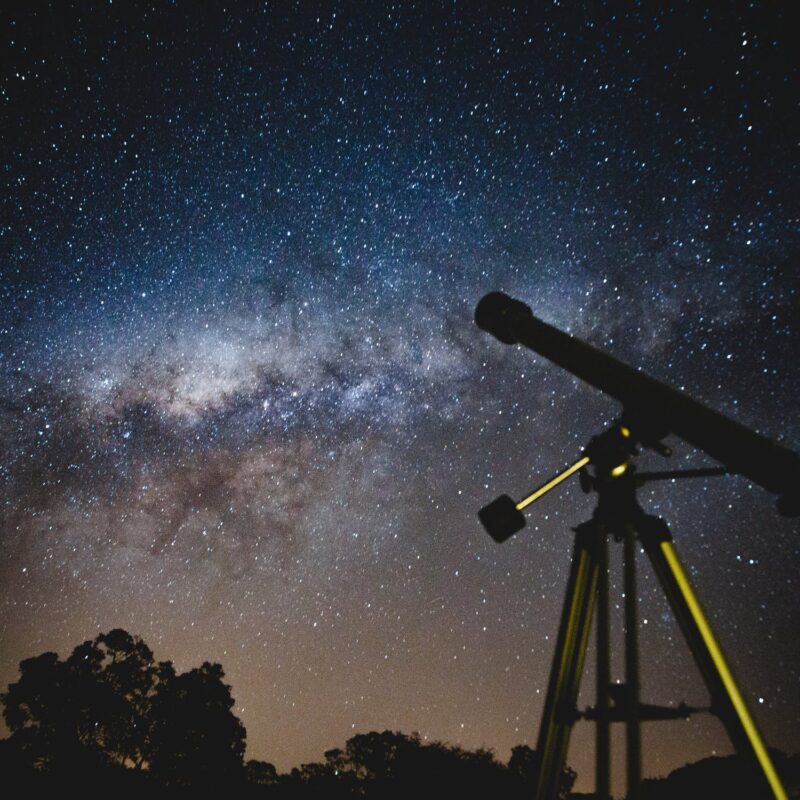

Image by Sven Hoppe
The relationship between consciousness and creation has fascinated humans for millennia, with Vedic philosophy and modern quantum mechanics each offering captivating insights into how our perception of reality is intricately woven into the fabric of existence. While separated by time and geography, both traditions converge on a profound idea: that consciousness is not merely a passive observer but a fundamental force that shapes reality itself. This blog explores how Vedic ideas on consciousness align with the principles of quantum mechanics, particularly the idea that observation plays a pivotal role in the manifestation of reality.
Consciousness in Vedic Philosophy: The Observer as the Creator
In the Vedic tradition, consciousness is not confined to the individual mind; it is a cosmic force that pervades all existence. The Vedas and Upanishads speak of Brahman, the ultimate reality, as a boundless, infinite consciousness. Brahman is both the source and substance of the universe, encompassing everything that is, was, and will be. The individual self, known as Atman, is considered a reflection of Brahman, making every sentient being a participant in the unfolding of reality.
Vedic sages believed that reality is shaped by the observer. In texts like the Mandukya Upanishad, the process of creation is described as arising from the interaction between the observer (consciousness) and the observed (the material world). The world, according to this view, does not exist independently of our perception; instead, it comes into being through the act of observation. The concept of Maya (illusion), further suggests that the physical world is a projection of consciousness, not an objective, fixed reality.
In essence, Vedic philosophy posits that consciousness is the creative force that brings the universe into existence. The observer is not a passive witness but an active participant in the process of creation, blurring the lines between subject and object, mind and matter.
Quantum Mechanics: The Observer Effect and Reality
Now, let’s fast forward a few millennia and step into the world of quantum mechanics — a branch of physics that has redefined our understanding of reality at the most fundamental level. One of the most striking phenomena in quantum mechanics is the observer effect. This refers to the idea that the very act of observing a quantum system can alter its state.
In quantum mechanics, particles such as electrons exist in a state of superposition, where they can be in multiple states at once. However, when we attempt to observe these particles, they “collapse” into a single, definite state. This is famously demonstrated in the double-slit experiment, where particles behave like waves when not observed, but act like particles when measured or observed. The simple act of observation forces the quantum system to make a decision — a phenomenon that has baffled scientists and philosophers alike.
The observer effect suggests that reality at the quantum level is not fixed until it is observed. This parallels the Vedic idea that the material world is a projection of consciousness. In both traditions, the observer plays a crucial role in shaping reality. While quantum mechanics does not attribute consciousness to this observer effect, it does challenge the notion of an objective, independent reality — opening the door to intriguing philosophical discussions about the nature of existence.
Bridging the Gap: Vedic Consciousness and Quantum Observations
When we look at the parallels between Vedic philosophy and quantum mechanics, it becomes clear that both traditions point to a universe that is deeply interconnected with the act of observation. In the Vedic tradition, consciousness is the primary force that brings the world into being. In quantum mechanics, the observer effect demonstrates that reality at the quantum level is influenced by observation. Though quantum mechanics stops short of attributing consciousness to this process, it aligns with the Vedic view in suggesting that reality is not as fixed or objective as we once believed.
Both systems invite us to reconsider the nature of reality. If observation can alter the state of a quantum system, and if consciousness is the force that projects reality in Vedic thought, then perhaps there is more to the relationship between mind and matter than we currently understand. While the language and metaphysics differ, both quantum mechanics and Vedic philosophy point to a participatory universe, where the observer plays a crucial role in the manifestation of reality.








































